Best Drill Bit Sharpeners for the Money 2025
- March 19, 2024
- 0 comment
Maintaining sharp drill bits is crucial for efficient and precise drilling tasks. A dull bit not only makes your job harder but can also be dangerous. Enter the drill bit sharpener, a tool designed to bring worn drill bits back to life. But with various models and features on the market, how do you choose the best one? This guide dives deep into everything you need to know about drill bit sharpeners, ensuring you make an informed decision.
List of Best Drill Bit Sharpeners for the Money
- General Tools 825 Drill Grinding Attachment
- Drill Doctor 750X Drill Bit Sharpener
- Drill Doctor X2 Multi-Degree Drill Bit Sharpener
- Drill Doctor DD500X Drill Bit Sharpener
- Drill Bit Sharpener Tormek DBS-22
Top Picks of Drill Bit Sharpener 2025
1. General Tools 825 Drill Grinding Attachment
Specifications
- Brand: General Tools
- Model: 825
- Dimensions:Length: 4.91 inches (12.5 cm)Width: 4.91 inches (12.5 cm)Height: 7.38 inches (18.7 cm)
- Weight: Approximately 620 grams (1.4 lbs)
- Compatible Drill Bit Sizes:Inch: 1/8″ to 3/4″Metric: 3mm to 19mm
- Grinding Angles: 88, 68, 59, 49, and 41 degrees
The General Tools Drill Grinding Attachment (#825) is a device that allows you to sharpen drill bits to their original sharpness, extending their life and improving drilling accuracy. It is designed for use with ANSI-, OSHA- and UL-approved electric bench or surface grinders.
Pros and Cons of General Tools 825 Drill Grinding Attachment
Pros
- Affordable drill bit sharpener
- Effective for small drill bits
- Easy to clamp bits
Cons
- Requires practice and skill to use
- Limited to drill bits, not for chisels or wood bits
- Struggles with sharpening larger bits
- Inconsistent grinding results possible
2. Drill Doctor 750X Drill Bit Sharpener
Specifications
- Drill Bit Capacity: 3/32″ to 3/4″ diameter bits (both twist and masonry)
- Sharpening Angle Range: 115° to 140° (adjustable)
- Material Compatibility: High-speed steel, masonry, carbide, cobalt, and TiN-coated drill bits
- Weight: 4.25 lbs
The Drill Doctor 750X Drill Bit Sharpener is a versatile sharpener designed for professionals and serious DIYers who need to sharpen a wide variety of drill bits. It can sharpen high-speed steel, masonry, carbide, cobalt, and TiN-coated drill bits from 3/32″ to 3/4″ in diameter. The 750X also features adjustable sharpening angles from 115° to 140°, which allows you to sharpen bits for a variety of materials.
Pros and Cons of Drill Doctor 750X Drill Bit Sharpener
Pros
- Sharpens many drill bit types (high-speed steel, masonry, carbide, etc.)
- Wide bit size range (3/32″ to 3/4″)
- Adjustable sharpening angles
- Easy to use (with practice)
- Saves money by extending drill bit life
Cons
- Not for specialty bits (spade or brad point)
- Requires practice to master sharpening technique
- Pricey compared to simpler sharpeners
3. Drill Doctor X2 Multi-Degree Drill Bit Sharpener
Specifications
- Drill Bit Capacity: Not specified (likely varies depending on attachment)
- Sharpening Angle: Interchangeable angle guide system for various angles
- Material Compatibility: High-Speed Steel, Masonry, and some other drill bit materials (consult manual for specifics)
- Weight: 4.4 lbs (2 kg)
- Dimensions: 13″ x 8″ x 5″ (33cm x 20.3cm x 12.7cm)
Drill Doctor X2 This is an all-in-one sharpener for drill bits, knives, tools, and more. It has an interchangeable angle guide system that allows you to sharpen drill bits at different angles.
Pros and Cons of Drill Doctor X2
Pros
- Multi-functionality: Sharpens drill bits, knives, tools, and more with interchangeable attachments (attachments might be sold separately).
- Interchangeable angle guide system: Offers more flexibility for sharpening at various angles.
- Compact and lighter: Easier to store and transport.
- Additional features: Point splitter for masonry bits and honing wheel for finishing provide more sharpening options.
Cons
- Limited drill bit capacity information: You might need to research compatible sizes for your specific needs.
- Potentially more complex setup and use: Interchangeable parts and multiple functions might require more learning and practice.
4. Drill Doctor DD500X Drill Bit Sharpener
Specifications
- Drill Bit Types: Black Oxide, Carbide, Cobalt, High-Speed Steel, Masonry, TiN-Coated
- Twist Bit Point Angles: 118º, 135º
- Drill Bit Sizes: 3/32″ to 1/2″ Twist & Masonry Bits (Optional 3/4″ Chuck available)
- Motor: Permanent Magnet (consistent power)
- Chuck: 1/2″ chuck (for bits from 3/32″ to 1/2″)
- Sharpening Wheel: 180 grit diamond wheel (pre-installed, user replaceable)
- Weight: 3.6 lbs
- Warranty: 3-year warranty
The Drill Doctor DD500X Drill Bit Sharpener is a versatile and easy-to-use tool that can sharpen a variety of drill bits, including high-speed steel, carbide, cobalt tin coated, and masonry bits. It can sharpen bits from 3/32 inch to 1/2 inch in diameter, and it can create and sharpen split point bits. The DD500X also features a cast aluminum point angle shuttle for added durability, and longer chuck jaws that hold bits more precisely.
Pros and Cons of Drill Doctor DD500X Drill Bit Sharpener
Pros
- Versatility: Sharpens a wide variety of drill bit materials (high-speed steel, carbide, cobalt tin coated, and masonry) and creates/sharpens split point bits.
- Easy to Use: Claimed to be user-friendly with a simple design and clear instructions.
- Durable Construction: Cast aluminum point angle shuttle and longer chuck jaws for better drill bit hold.
- Sharpens Various Sizes: Handles bits from 3/32 inch to 1/2 inch in diameter.
- Quick Sharpening: Saves time and money compared to replacing drill bits frequently.
- Good Warranty: Comes with a 3-year warranty for peace of mind.
- Readily Available Replacement Parts: Makes maintenance and repairs easier.
Cons
- Price: Can be more expensive than some other drill bit sharpeners on the market.
- Learning Curve: While advertised as easy to use, there might still be a learning curve to achieve perfectly sharpened bits.
- Limited Size Range: May not be suitable for those who need to sharpen larger bits (optional 3/4″ chuck sold separately).
- Not Ideal for Professionals: May not be heavy-duty enough for extensive sharpening needs in professional settings.
5. Drill Bit Sharpener Tormek DBS-22
Specifications
- Drill Bit Capacity: 3 mm (1/8″) to 22 mm (7/8″) diameter
- Point Angle: Adjustable from 90° to 150°
- Clearance Angle: Adjustable to 7°, 9°, 11°, or 14°
- Material: Precision-cast zinc, stainless steel, black composite
- Weight: 3.35 kg (7.39 lb)
- Warranty: 2 years
The Tormek DBS-22 Drill Bit Sharpening Attachment is an accessory for Tormek water-cooled sharpening systems that allows you to sharpen drill bits with precision. It can sharpen bits from 3mm (1/8″) to 22mm (7/8″) in diameter and create a four-facet point for optimal drilling performance.
Pros and Cons of Drill Bit Sharpener Tormek DBS-22
Pros
- Sharp, Precise Drill Bits: Creates a superior four-facet point that drills faster, cleaner, and with less wandering.
- Extends Drill Bit Life: Regular sharpening prevents bits from dulling and breaking, saving you money in the long run. Tests claim sharpened bits last up to 4 times longer than new conventional bits.
- Highly Adjustable: Sharpen for different materials (wood, metal, concrete) by adjusting point angle (90-150°) and clearance angle (7°, 9°, 11°, or 14°).
- Water-Cooled Sharpening: Reduces risk of overheating and maintains temper of the steel during sharpening.
- Easy to Use: Clamps hold bits securely, and design allows for easy inspection of progress.
- Space-Saving: Compact design for easy storage when not in use.
- Quiet Operation: Suitable for use in workshops where noise might be an issue.
Cons
- Cost: The DBS-22 itself is an investment, and requires owning a separate Tormek water-cooled sharpening system (T-7 or T-3).
- Learning Curve: There’s a learning curve to using the jig and achieving optimal sharpening results.
- Time Investment: Sharpening each bit takes time, especially for larger bits. May not be ideal if you need to sharpen a large number of bits quickly.
- Not Fully Automatic: Requires user judgement for final shaping, especially for experienced users who might prefer more control.
- Limited Drill Bit Size: Only sharpens bits up to 22mm (7/8″) in diameter.
Some Tips To Buy The Best Drill Bit Sharpeners
- Understand Your Needs: Before diving into the plethora of options, assess what you need in a sharpener. Consider the types of drill bits you frequently use, the volume of sharpening you anticipate, and whether you’ll require portability.
- Choose Between Manual and Electric: Manual sharpeners are more affordable and portable but require a bit more effort and skill to use effectively. Electric sharpeners, while typically more expensive, offer convenience, speed, and precision with minimal effort.
- Look for Versatility: A good drill bit sharpener should accommodate various sizes and types of drill bits. Adjustable angle settings and the ability to handle different drill bit materials like HSS, cobalt, or carbide can make a sharpener more versatile and valuable.
- Prioritize Quality and Durability: The construction of the sharpener is critical. Look for models made from durable materials that can withstand regular use. A well-built sharpener will not only last longer but also provide consistent results.
- Ease of Use: Especially for those less experienced with tool maintenance, a user-friendly design is crucial. Features like clear instructions, easy setup, and straightforward operation can make a big difference in your sharpening experience.
- Safety Features: Safety should never be compromised. Ensure the sharpener has secure handling features and safety guards to protect you during the sharpening process.
- Read Reviews and Recommendations: Leverage the experiences of others by reading product reviews and recommendations. These can provide insight into the sharpener’s performance, reliability, and potential issues you might not have considered.
- Consider the Price: While it’s tempting to go for the cheapest option, investing in a higher-quality sharpener can be more cost-effective in the long run. It will likely perform better and last longer, saving you from frequent replacements.
- Warranty and Support: Check for a warranty or guarantee that comes with the sharpener. A product backed by a solid warranty can provide peace of mind and protection against defects or failures.
- Brand Reputation: Opt for brands with a good reputation for quality and customer service. Established brands are more likely to offer reliable products and support if you encounter any issues.
Related Post:
Conclusion
In conclusion, selecting the best drill bit sharpener requires careful consideration of your specific needs and preferences. Key factors to keep in mind include the type of sharpener (manual or electric), the range of drill bit sizes it can accommodate, its ease of use, durability, and any additional features that enhance safety and efficiency. Whether you’re a professional tradesperson or a DIY enthusiast, investing in a quality drill bit sharpener can significantly extend the life of your drill bits, improve the precision of your work, and save you time and money in the long run. Remember to also consider user reviews and product warranties as part of your decision-making process. With the right sharpener, you’ll ensure that your drill bits are always in top condition, ready for any job that comes your way.
FAQs
- What types of drill bits can I sharpen with a drill bit sharpener?
Most drill bit sharpeners are designed to handle common types such as twist drill bits. However, some models can also sharpen other types, including masonry and spade bits. Always check the sharpener’s specifications to ensure compatibility with your drill bits. - How often should I sharpen my drill bits?
The frequency depends on how often you use them and the materials you’re drilling into. A good rule of thumb is to sharpen them when you notice a decrease in drilling efficiency or if the edges start to look dull. - Can I sharpen very small drill bits with a standard sharpener?
Some sharpeners can handle small bits, but it often depends on the model’s design and capabilities. Look for sharpeners that specify their ability to sharpen small-sized bits, typically in the range of 3mm and below. - Is it difficult to use a drill bit sharpener?
Manual sharpeners may require a learning curve to achieve the right angle and pressure, whereas electric sharpeners usually come with guides and are more straightforward. With a bit of practice, both types can be used effectively. - Do electric drill bit sharpeners work with all power voltages?
Electric sharpeners are typically designed for specific voltage ranges. It’s important to choose a model that’s compatible with your local power supply. Always check the product specifications before purchasing. - How can I ensure the longevity of my drill bit sharpener?
Regular maintenance, such as keeping the sharpener clean and free of debris, is key. Also, ensure that you’re using the sharpener as intended by the manufacturer and not pushing it beyond its limits with overly frequent or improper use. - Are there any safety tips I should follow when using a drill bit sharpener?
Yes, always wear protective eyewear to guard against metal shavings and dust. Ensure the sharpener is securely placed on a stable surface, and follow all manufacturer instructions and safety guidelines. - Can I sharpen coated drill bits without damaging the coating?
Sharpening can remove the coating on drill bits, which may affect their performance. If you have coated bits, consider whether the sharpening benefits outweigh the potential loss of the coating’s advantages. - What’s the difference between a cheap and an expensive drill bit sharpener?
Generally, more expensive sharpeners offer greater precision, durability, and features such as adjustable angles and multiple bit size compatibility. However, a higher price doesn’t always guarantee better performance, so it’s important to read reviews and compare features. - Can I sharpen other tools with my drill bit sharpener?
Some drill bit sharpeners are versatile enough to sharpen other types of cutting tools, such as knives or scissors, but this is not universal. Check the manufacturer’s guidelines to see if your sharpener has this capability.

Joel Cunningham
Forestry AuthorI'm Joel Cunningham, an expert in pruning and weed management with over a decade of experience. My skills are rooted in formal training and extensive practice, focusing on advanced pruning techniques and efficient weed control. I'm known for my quality work, precision, and deep understanding of plant health and soil dynamics. My contributions extend to educational initiatives where I share sustainable practices and advice, establishing myself as a reliable and authoritative figure in the gardening community.

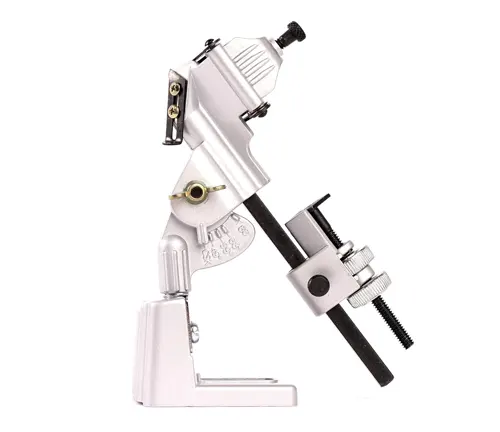
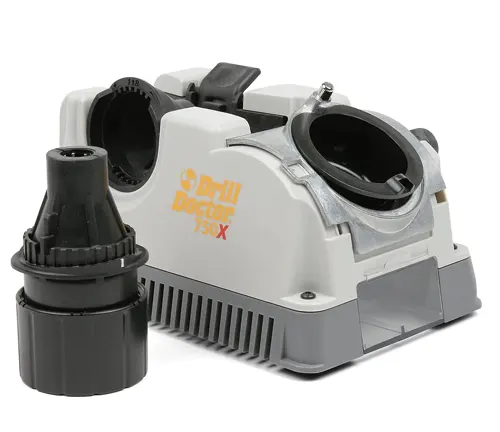
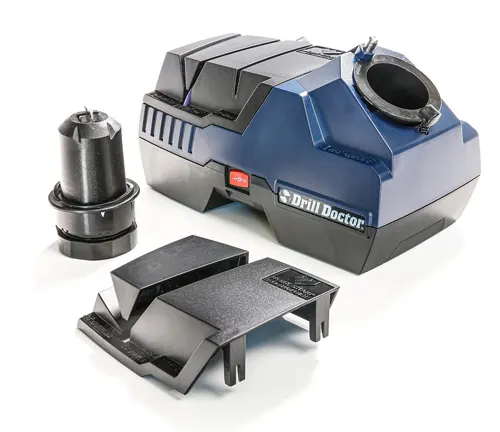
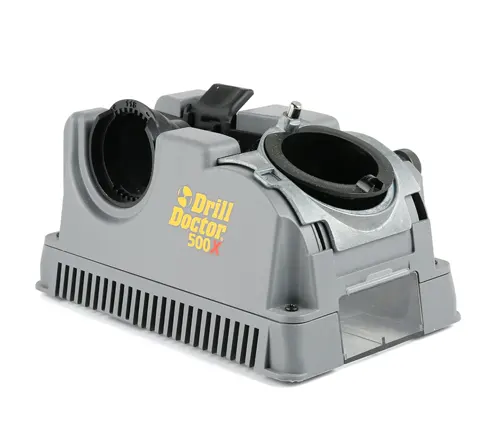
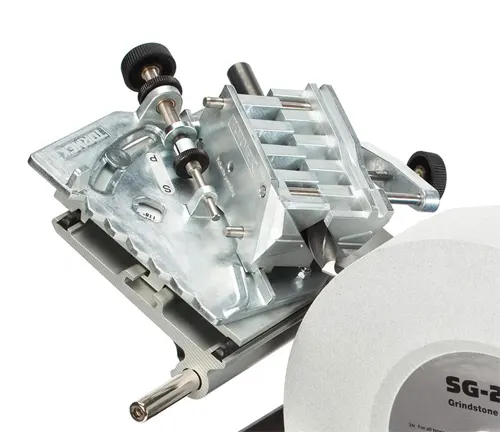
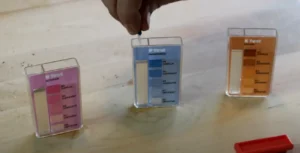









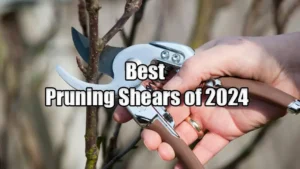

Leave your comment